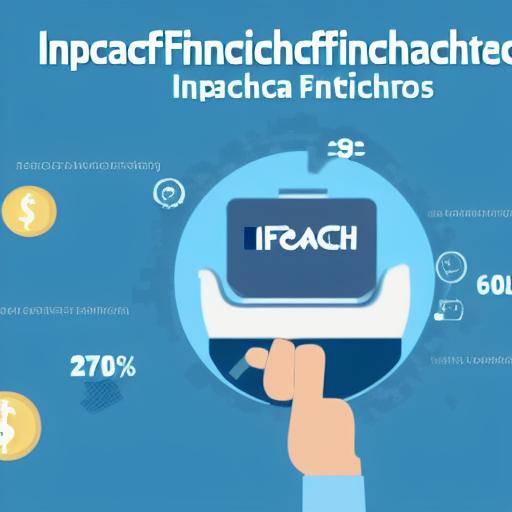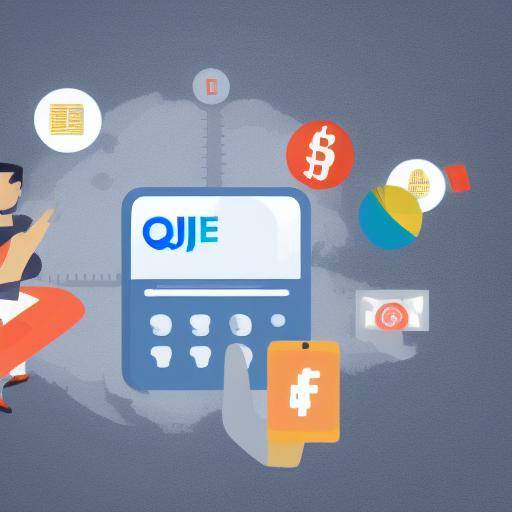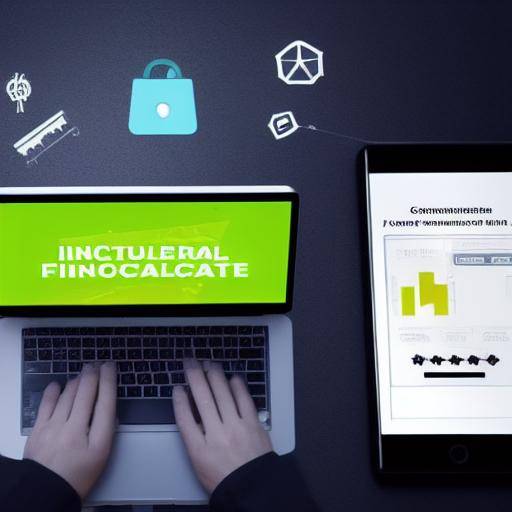
Introduction
The financial industry has undergone a revolutionary change with the advent of financial technology, better known as Fintech. These technological innovations have transformed the way in which users interact with financial services, significantly improving customer experience. In this article, we will explore how Fintech is positively impacting users, the technology involved and the resulting satisfaction. We will examine its influence on banking, payments, loans and investment services, providing a comprehensive analysis of its impact on the industry.
History and background
The historical evolution of the financial industry has witnessed significant changes over time. Since the introduction of the first currencies to credit card development and online banking, each advance has marked a milestone in how users interact with financial services. With the beginning of the Fintech era, technology has played a key role in the transformation of industry. Over the past decade, we have witnessed exponential growth in Fintech startups that have challenged the status quo of traditional banks, providing a new perspective for the financial sector.
The implementation of technologies such as artificial intelligence, automatic learning, blockchain and biometry has enabled Fintech companies to deliver more efficient, personalized and secure services. These technological advances have facilitated faster transactions, reduced operational costs and strengthened security measures in financial transactions, resulting in a significant impact on user experience.
Transformation of banking
Digital banking
Digital banking has been one of the biggest changes promoted by Fintech. Digital banking platforms allow customers to access their accounts and perform transactions from anywhere at any time, eliminating the need to visit a physical banking branch. This change has improved convenience and reduced the time and effort needed to manage personal finances.
Personalization of services
Thanks to artificial intelligence and data analysis, banks can provide customized services to their customers. Algorithms can analyze customer spending and savings patterns and provide customized recommendations for financial management. This not only improves customer experience, but also helps banks to increase customer loyalty and satisfaction.
Innovations in payments
Mobile payments
Mobile payments have revolutionized how consumers conduct daily transactions. Applications like Apple Pay, Google Wallet and Samsung Pay allow users to make safe and fast payments directly from their mobile devices. This has reduced the dependence on cash and physical cards, providing a more fluid and convenient payment experience.
No-contact payments
Contact-free payment technology has accelerated transactions and improved customer experience in physical sales points. With the use of credit and debit cards enabled for non-contact payments, as well as mobile and wearable devices, consumers can make payments simply by bringing their device to the payment terminal, which reduces waiting time and improves efficiency in the payment process.
Revolution in Loans
Loans online
Online loan platforms have simplified the loan application and approval process. Customers can apply for loans from the comfort of their home and receive approvals within minutes. These platforms use advanced credit analysis algorithms to assess applicants' solvency, which speeds up the process and reduces operational costs.
Pair loans (P2P)
The peer loan model (P2P) has eliminated the need for traditional intermediaries such as banks. P2P platforms connect directly to borrowers with lenders, offering more favorable conditions for both parties. This transparency and efficiency have made loans more accessible and competitive.
Innovation in investment services
Robo-advisors
Theft-advisors are automated investment platforms that use algorithms to manage investment portfolios. They offer a low-cost alternative to traditional financial advisers and make investment accessible to a wider audience. Theft-advisors provide customized investment recommendations based on the risk profile and the client's financial objectives.
Trading of cryptocurrencies
The emergence of cryptocurrencies and cryptocurrency trading platforms has opened up new investment opportunities. Trading platforms allow users to buy, sell and manage cryptocurrencies in a safe and efficient way. In addition, blockchain technology guarantees the transparency and security of transactions.
Security and privacy
Biometry
Biometric technology, such as facial recognition and fingerprints, has significantly improved security in financial transactions. These technologies ensure that only the authorized user can access their account and perform transactions, reducing the risk of fraud.
Blockchain
Blockchain technology offers a safe and transparent solution for financial transactions. Each transaction is recorded in a distributed larger book, which makes manipulation and fraud difficult. This has increased user confidence in digital financial transactions.
Customer satisfaction
24/7 customer service
Fintech applications and platforms provide 24/7 customer service through chatbots and virtual assistants. This ensures that customers can receive assistance at any time, improving their overall experience with financial services.
User experience
The user-centred design is a key feature of Fintech applications. Intuitive and user-friendly interfaces improve customer accessibility and satisfaction, making personal finance management easier and more efficient.
Conclusion
Fintech has transformed the financial industry by significantly improving customer experience. The implementation of advanced technologies has made financial services more accessible, efficient and secure. By continuing to innovate, Fintech will continue to improve how users interact with financial services, establishing a new industry standard.
Frequently asked questions
**1. What's Fintech?**Fintech refers to financial technology, which includes a wide range of technologies used to improve and automate financial services.
**2. How has Fintech improved banking?**Fintech has improved banking by offering digital services, customization of services and greater convenience for customers.
**3. What are mobile payments?**Mobile payments allow users to perform transactions using their mobile devices, eliminating the need for cash or physical cards.
**4. What are the robbery-advisors?**Theft-advisors are automated investment platforms that use algorithms to manage investment portfolios, offering a low-cost alternative to traditional financial advisers.
**5. How does biometry improve financial security?**Biometry, such as facial recognition and fingerprints, ensures that only the authorized user can access their account and perform transactions, reducing the risk of fraud.
By adopting these technologies, the financial industry is improving customer experience and establishing new standards of efficiency and security in financial services.






















































